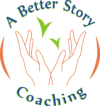I am a fortunate person. Social distancing is comfortable for me, and so far, I have personally managed the COVID-19 crisis pretty well. I have even joked about how much I love being home and how little I miss interacting with people. Nevertheless, I get out of the house a couple of days a week because I am also a professional helper. I have worked in social services in Fairfield County for many years. Serving others is a lifestyle for me. My friendships and professional networks are pretty homogeneous; we share the same values and political views. We interact with the poor and disadvantaged daily, but many of us have the privilege of going to the comfort of our homes, knowing that at least for the time being, we have a roof over our heads and almost enough to pay the bills. Because we live between two different realities, trying to come to terms with the gaps we see in this corner of the state is an internal job. To find balance, we talk about self-care (although a small number of us actually practice any) and try to disconnect at the end of the day from the stories we hear. At friends and family gatherings, we avoid gloomy conversations; most people do not want to hear it. But our increased awareness of those “other” realities are always lingering in our minds. Those differences mark the world, but not everyone has the opportunity to experience them first hand.
COVID-19 has been talked about as a virus that does not discriminate. It can affect anyone, no matter their social status, age, or skin color. Yet, as things usually go, the ones that suffer the most continue to be those at the bottom. People with no jobs and no rights to apply for unemployment can’t pay their rent and must rely on charity to get some food on the table. No local government, hospital, or school was ready for this blow. With the support of many generous people, helping organizations have again come to supply for those needs. Some helpers are on the ground delivering food for sick people, serving lunches to go, and opening new food pantries. Others are on the phone for hours a day, almost losing their personal lives, talking to those who have lost their jobs, or are sick unable to provide for their families. Their role is not only to direct people to services but also to offer an ear where people can vent and speak about their worries.
There are small wins every day, like the grateful smile of the person picking up a bag full of groceries placed six feet away and the sincere words of someone saying God Bless You. Even if you are not a person of faith, this comforts you in a way that feels pretty much like love. But the sense that it is never enough brings the helper back to reality. We know that these small contributions are only a temporary fix on a problem that has deep roots in the inequalities of society.
I would like to believe that COVID-19 will make us better people. Yet, I also know that in times of scarcity, we humans are wired to protect our families and those who are similar to us, making sure that we have enough resources for them. This instinct separates us. We have been taught since childhood (not by words, but by actions) that some people have more value than others. In turn, when we do not consciously examine these beliefs, they can turn into deep-rooted opinions that perceive others as less than.
During this crisis, when we have a little too much time to think and feed our fears, it is of utmost importance for all of us to find a plausible way to help our world become better. I am not asking you to go out there and put your health at risk, but within your means to find a way to lend a hand to someone that might not look like you. I think most professional helpers would tell you that it will make you feel better. I also ask you to choose your words carefully when you refer to those you don’t know and to keep your mind open in understanding the realities of those that have had lives of hardship. To have a kinder world and a more compassionate country, it is not only necessary to have small wins every day, but also to start personally challenging beliefs that might keep us from being our best selves. Be the kind of helper that helps the world heal.
With over 15 years of senior executive experience in the social service industry, Ivonne Zucco is the Founder and CEO of A Better Story Coaching, a life transition coaching service that aims to unlock the potential of diverse leaders, support individuals through their personal and professional growth, and to create a community of social influencers sharing their expertise for the benefit of all.
